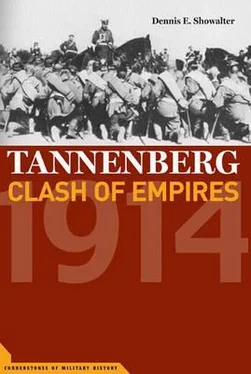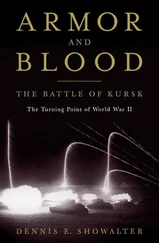11Nicolson to Grey, May 1, 1909, BDFA V, Nr. 67. Detailed analyses sympathetic to the German position are Heinz-Günther Sasse, War das deutsche Eingreifen in die Bosnische Krise im März 1909 ein Ultimatum? (Stuttgart, 1936); and Heinz Gerhardt, War in der bosnischen Annexationskrise die deutsche Demarche vom 22.Marz ein Ultimatum? (Berlin, 1965).
12Nicolson to Grey, May 7, 1909, BDFA V, Nr. 70.
13D. W. Sweet, “The Bosnian Crisis,” in British Foreign Policy under Sir Edward Grey, ed. F. R. Hinsley (Cambridge, 1977), 190 ff.
14A good overview of this process is Peter F. Sugar, “External and Domestic Roots of Eastern European Nationalism,” in Nationalism in Eastern Europe, ed. P. F. Sugar, I. J. Lederer (Seattle, London, 1969), 3–54.
15Pourtalés to Bülow, Mar. 19 and Apr. 1, 1909, PAAA, Deutschland 131/30. Hintze to William, Apr. 3 and May 29, 1909; GP, XXVI, 2, 9505, 9545; and Mar. 24, 1910, PAAA, Russland 98, Geheim.
16Pourtalés to Bethmann, Feb. 9, 1910, PAAA, Deutschland 131/32; Posadowsky-Wehner to war ministry, Aug. 12, 1910, GP XXVI, 2, Nr. 9950; Hintze to William, Aug. 19, 1910, PAAA, Russland 98, Geheim. For anti-German attitudes in Russia at this period Cf. D. C. B. Lieven, Russia and the Origins of the First World War (New York, 1983), p. 37; and Uwe Liszkowski, “Zur Aktualisi-erung der Stereotype ‘Die Deutsche Gefahr’ im russischen Neoslawismus,” in Russland und Deutschland. Festschrift für G. v. Ranch, ed. U. Liszkowski (Stuttgart, 1974), 278–294.
17The outlines of Moltke’s approach can be found in Moltke to Bülow, Jan. 19, 1909, “Militärische Leistungsfähigkeit der wichtigsten Staaten Europas zu Beginn dieses Jahren,” PAAA, Deutschland 121/31, Geheim; Adolf Tappen’s comments on strategic planning for a two-front war of Oct. 22, 1919, Bundesarchiv-Militärarchiv, Nachlass Tappen, N56/4; and the Immediatvortrag of Nov. 4, 1909, in BA-MA, RM 5/1607.
18 Immediatvortrag to William, Oct. 24, 1908, ibid.; memorandum from the chief of the admiralty staff, Mar. 19, 1909, and report of a conference between the chief of the admiralty staff and Moltke on March 18, 1909, ibid., RM5/1633.
19Colonel Wyndham to Nicolson, Nov. 19, 1908, BDFA V, Nr. 53.
20A report of the Schlussaufgabe for 1907 is in BA-MA, Nachlass Groener, N46/111. Moltke’s comment to the navy is in his reply of Apr. 2, 1909, to an admiralty questionnaire in BA-MA, RM5/1633.
21Moltke’s general reasoning on the prospects of an offensive against Russia is developed in his 1909 correspondence with Conrad, most of it reprinted in Franz Conrad von Hötzendorf, Aus meiner Dienstzeit, 5 vols. (Vienna, 1921–25), II, 633 passim. Cf. also the analyses by Norman Stone, “Moltke-Conrad: Relations between the Austro-Hungarian and German General Staffs, 1909–1914,” Historical Journal IX (1966), 201–228; and “Die Mobilmachung der österreichischen-ungarischen Armee 1914,” Militärgeschichtliche Mitteilungen XVI (1974), 67–95 and Dennis E. Showalter, “The Eastern Front and German Military Planning, 1871–1914: Some Observations,” East European Quarterly XV (1981), 163–180.
22Bethmann made his intentions plain in his conferences of Oct. 14 and Nov. 4, 1909, with the British Ambassador. Cf. Yale University, Kiderlin-Wächter Papers, Box 16, Folder 173; with Goschen to Grey, Oct. 15 and Nov. 4, 1909, in BD VI, Nrs. 200, 204. Fritz Fischer, “Die Neutralität Englands als Ziel deutscher Politik 1908/09–1914,” in Von der freien Gemeinde zum foderalistischen Europa, ed. F. Esterbauer et al. (Berlin, 1983), pp. 261–282, insists this was no more than an effort to clear the ground for a general war. For more balanced interpretations of Bethmann’s policies cf. Oswald Hauser, Deutschland und der englisch-russische Gegensatz, 1900–1914 (Göttingen, 1958); Hansjoachim Henning, Deutschlands Verhaltnis zu England in Bethmann-Hollwegs Aussenpolitik 1909–1914 (Köln, 1962), and more generally and very perceptively, Konrad Jarausch, The Enigmatic Chancellor. Bethmann Hollweg and the Hubris of Imperial Germany (New Haven, Conn., 1973), pp. 108 ff.
23Bethmann to Metternich, Nov. 10, 1909, Kiderlin Papers 10/173.
24Bethmann’s memorandum of Feb. 20, 1910, PAAA, Orientalia Generalia 5/17.
25Mirbach to Bethmann, Oct. 4 and Oct. 20, 1910, PAAA, Deutschland 131/32; Pourtalés to Bethmann, Apr. 22, 1910, ibid., 30; Hugh O’Bierne to Grey, Oct. 5, 1910, BDFA VI, Nr. 40.
26A useful recent treatment of the Potsdam Conference is Robert E. Simmons, “German Balkan Diplomacy, 1906–1913. The Genesis and Implementation of a War-Risk Policy” (Ph.D. Dissertation, Auburn University, 1982), 320 ff. Key documents include Bethmann to William, Nov. 1 and Nov. 6, 1910, GP XXVI, 2, Nrs. 10152, 10153; Bethmann to Pourtalès, Nov. 8 and Nov. 15, 1910, ibid., Nrs. 10155 and 10159; Bethmann to Aehrenthal, Nov. 14, 1910, PAAA, Orientalia Generalia 5/17; and Tschirsky to Bethmann, Nov. 6 and Nov. 20, 1910, PAAA, Deutschland 131/32. Germany’s problem in generating investment capital is described in Raymond Poidevin, “Weltpolitik allemand et capitaux frangais 1898–1914,” in Deutschland in der Weltpolitik des 19. und 20. Jahrhunderts, ed. I. Geiss, B-J Wendt (Düsseldorf, 1973), 237–249.
27“Die wichtigsten Veränderungen im Heerwesen Russlands im Jahre 1910,” BA/MA, RM5/1486; Military attaché’s report to war ministry of Sept. 13, 1911, PAAA, Russland 72/92.
28Kiderlin to Lichnowski, Dec. 6, 1912, PAAA, Deutschland 131/34; letter of Mar. 20, 1909, in E. Jäckh, Kiderlin-Wächter, der Staatsmann und Mensch, Vol. II (Stuttgart, 1924), 26–27.
29V. N. Kokovtsov, Out of My Past, ed. H. H. Fischer, M. L. Malveev (Stanford, 1935), 334 ff.; Mary S. Conroy, Peter Arkad’evich Stolypin: Practical Politics in Late Tsarist Russia (Boulder, Colo., 1976); Ferenczi, Aussenpolitik und Öffentlicheit, 259 ff.
30Hans Uebersberger, Österreich zwischen Russland und Serbien (Köln, Graz, 1958), highlights on the other hand the objective threat these Russian initiatives posed to vital Habsburg interests.
31For Russia’s Balkan policy generally cf. Andrew Rossos, Russia and the Balkans: Inter-Balkan Rivalries and Russian Foreign Policy, 1908–1914 (Toronto, 1981); and E. C. Thaden, Russia and the Balkan Alliance of 1912 (University Park, Penn., 1965).
32At the conference of the general staffs, held on August 31. France, Ministére des Affaires Étrangéres, Documents Diplomatiques Français 1871–1914, 41 vols. (Paris, 1929–59), 3rd Series, II, Nr. 90 (hereafter cited as DDF).
33Cf. D. W. Spring, “Russia and the Franco-Russian Alliance, 1905–14: Dependence or Interdependence?” Slavonic and East European Review LXVI (1988), 564–592; and Douglas Porch, “The Marne and After: A Reappraisal of French Strategy in the First World War,” The Journal of Military History, LIII (1989), 363–386. Donald R. Mathieu, “The Role of Russia in French Foreign Policy, 1908–1914” (Ph.D. Dissertation, Stanford University, 1968); and Carol H. Wilcox, “The Franco-Russian Alliance, 1908–1911” (Ph.D. Dissertation, Clark University, 1968), survey this subject in detail from a diplomatic perspective.
34Report of the German consulate at Tiflis, Dec. 25, 1912, in PAAA, Russland 72/94. On the Turkish rearmament after 1908 see particularly Jehuda L. Wallach, Anatomie einer Militärhilfe. Die preussisch-deutsche Militärmissionen in der Türkei, 1835–1919 (Düsseldorf, 1976).
35Geoffrey Barraclough, From Agadir to Armageddon (New York, 1982), is a strong recent argument for the Second Moroccan Crisis as a decisive event in the origins of World War I. Douglas Porch, The Conquest of Morocco (New York, 1983), focusses on the local and regional factors inspiring the French action. J. C. Allain, Agadir 1911 (Paris, 1976), is a detailed analysis from a French perspective. Emily Oncken, Panthersprung nach Agadir: Die deutsche Politik während der zweiten Marokkokrise 1911 (Düsseldorf, 1981), is excellent for the German side.
Читать дальше












